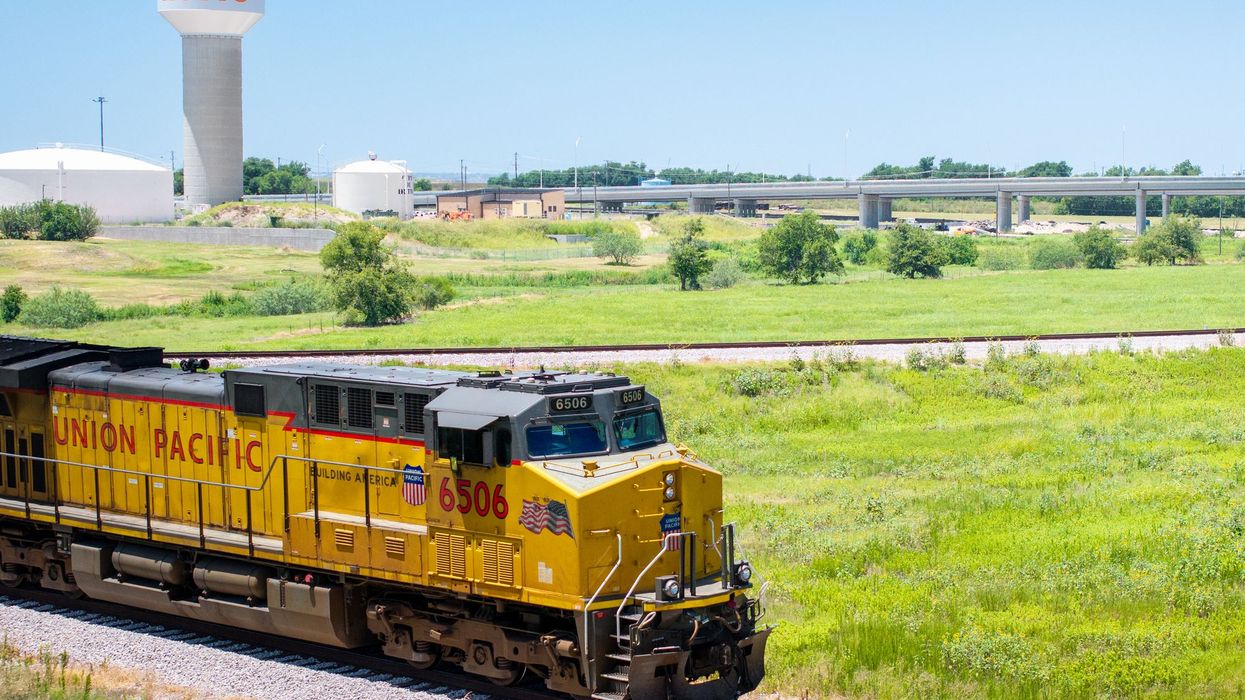A coalition of conservation and fishermen's groups have filed a lawsuit
today in state Superior Court challenging the failure by the state and
regional water boards to implement clean water laws that protect wild
rivers and streams in California's North Coast region.
The coalition -- which includes the Redwood Chapter of Sierra Club,
Pacific Coast Federation of Fishermen's Associations, Institute for
Fisheries Resources, Friends of the Eel River, Friends of the Navarro
Watershed, Environmental Protection Information Center, Northcoast
Environmental Center, and Klamath Riverkeeper -- is urging the agencies
to adopt clean-up plans required by state law that will meet pollution
limits set by the U.S. Environmental Protection Agency.
"Regional and state officials have failed to develop realistic,
workable action plans that protect water quality and provide habitat
for endangered salmon that need cool, clean water to survive," said
George Torgun of Earthjustice, who is representing the coalition in
court. "Without such plans, water quality in North Coast rivers and
streams will not meet the standards that the state is obligated to
achieve."
For decades, water quality in North Coast river and streams has been
degraded by pollutants such as sediment, nutrients, high temperatures,
low dissolved oxygen levels, and turbidity. These pollutants are the
result of a diverse number of activities, including dam construction,
water diversions, urban development, agriculture, logging, mining, and
grazing.
The declining river and stream conditions have greatly impacted the
survival of regional salmon species, including chinook salmon, coho
salmon, and Northern California steelhead, which are now listed under
the federal Endangered Species Act. The collapse of salmon stocks on
the west coast has resulted in severe restrictions on commercial and
recreational fishermen, including the first ever complete shutdown of
the commercial salmon fishing season last year.
"We need abundant populations of salmon for long-term economic
stability and for our future generations of fishermen," said Glen
Spain, northwest regional director of the Pacific Coast Federation of
Fishermen's Associations, a commercial fishing industry trade
association that is also a co-plaintiff in the suit. "Providing the
conditions necessary for salmon to survive could bring back tens of
thousands of fishing jobs and a billion dollar industry to our region."
The action plans at issue are part of the Clean Water Act's Total
Maximum Daily Load (TMDL) program that the North Coast Regional Water
Quality Control Board, along with the State Water Resources Control
Board and EPA, are responsible for implementing to address water
pollution problems in the region. The program first requires the
agencies to identify and maintain a list of rivers and streams that are
not meeting applicable water quality standards. The agencies must then
assess the various sources of pollution causing the violations, set
pollution limits for these sources, and then develop action plans to
achieve the standards.
While most of the North Coast's major rivers have not met certain water
quality standards for many years, implementation of the TMDL program to
address these problems has suffered from a history of inaction. In
1995, a coalition of groups, including many of the same organizations
involved in today's action, sued EPA for its failure to address water
quality problems under the program. That case resulted in a consent
decree requiring EPA to set pollution limits for 17 listed water bodies
within the region by 2007.
EPA has completed most of the work required by the consent decree.
However with the exception of just three water bodies - the Garcia
River, Scott River, and Shasta River - the Regional Board and State
Board have failed to prepare action plans that meet pollution limits as
required by the state Porter-Cologne Water Quality Control Act.
"The ecological collapse in our rivers is bad not just for fish, but
also for the thousands of people and local communities that depend on
the health of these rivers," said Georgianna Wood of the Northcoast
Environmental Center. "These pollution problems may be complex, but the
state and regional boards have the tools they need to act, and we urge
them to do so."
In their complaint, the groups recognized that the agency with direct
control over the region, the North Coast Regional Water Quality Control
Board, has suffered from massive cuts in staffing and funding in recent
years for its clean water programs. "While the Regional Board appears
to be making some progress, they have lost 60 staff members since 2001,
leaving the agency unable to protect our wild rivers," said Daniel
Myers, representing Sierra Club's Redwood Chapter. "Unfortunately,
neither the Regional Board nor the State Board have taken meaningful
measures to acquire the staff and resources that are needed for the
TMDL program to succeed."
"The state has dragged its feet and ignored the law for far too long,"
added Scott Greacen of the Environmental Protection Information Center.
"It's time for action to restore the health and grandeur of the North
Coast's wild rivers."
Read the complaint filed today here:
https://www.earthjustice.org/library/legal_docs/northcoast-tmdl.pdf



